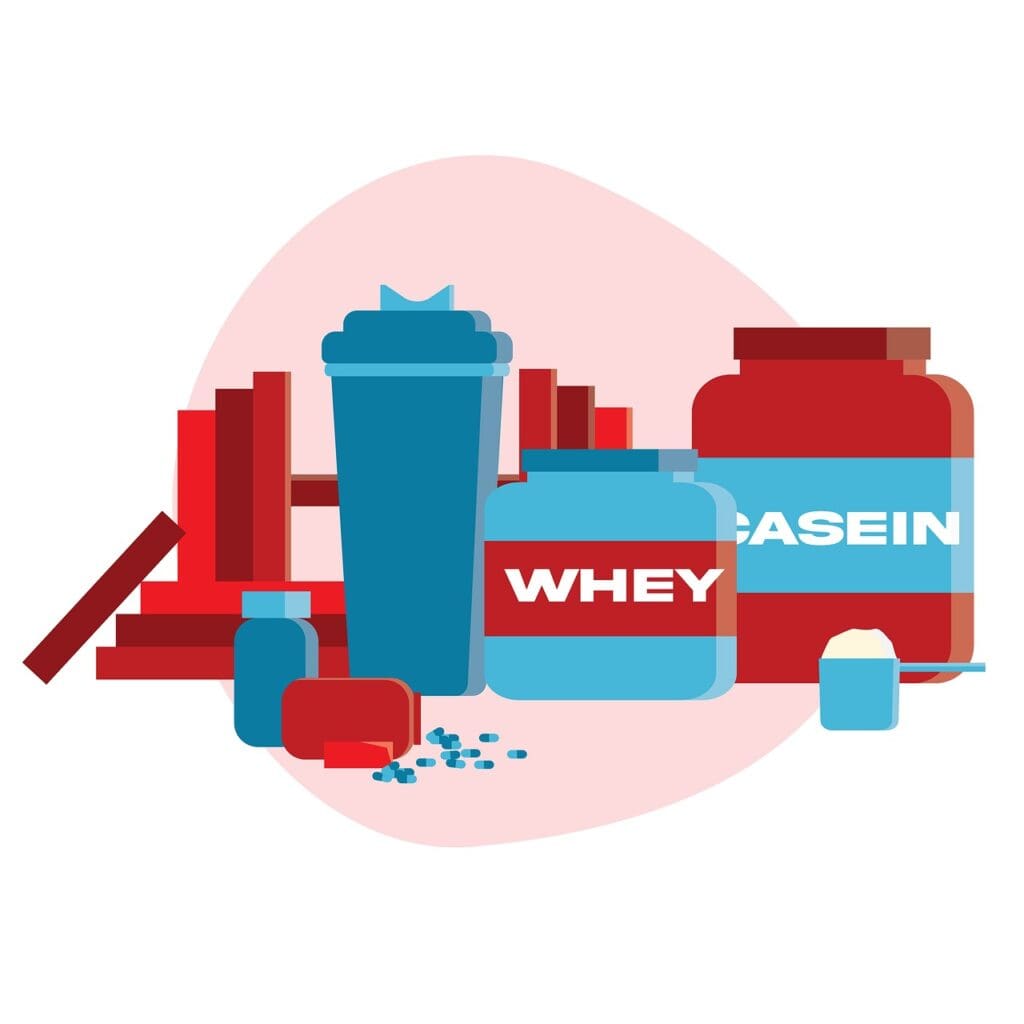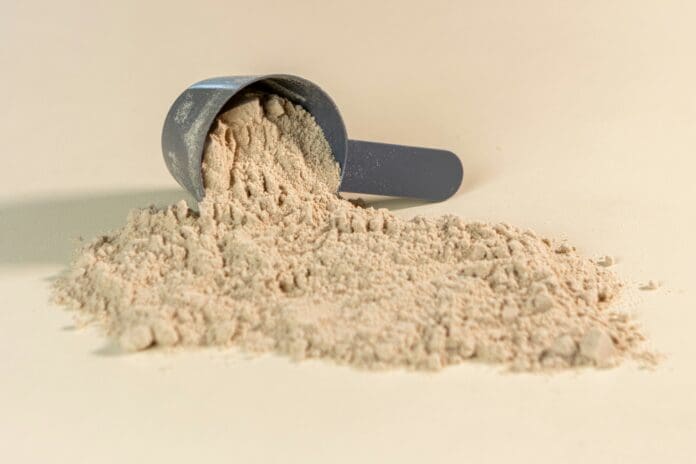Protein supplements offer benefits like supporting muscle growth and recovery, aiding weight loss, and providing a convenient way to meet protein needs, especially for busy individuals or those with specific dietary requirements.
The Benefits of Protein Supplements:
Muscle Growth and Recovery:
Muscle Building:
It is essential for building and repairing muscle tissue, making protein supplements a popular choice for athletes and those looking to increase muscle mass.
Muscle Recovery:
Also it helps the body recover from intense workouts by repairing micro tears in muscle tissue, reducing soreness and promoting faster recovery.
Essential Amino Acids:
Protein supplements also provide a concentrated source of essential amino acids, which are the building blocks of protein and crucial for muscle function.
Weight Management With Protein Supplements:
Weight Loss:
Furthermore it can aid in weight loss by increasing feelings of fullness, reducing appetite, and boosting metabolism.
Satiety:
In addition it triggers the release of hormones that signal your brain that you’re full, which can help you eat fewer calories.
Lean Muscle Mass:
It helps maintain and even increase lean muscle mass, which is important for a healthy metabolism and burning more calories at rest.

Convenience and Nutritional Needs of Protein supplements:
Easy to Consume:
Protein Supplements are convenient and easy to consume, making them a quick and easy way to meet daily requirements.
Time-Saving:
They are a time-saving option for busy individuals who may struggle to get enough of it through whole foods alone.
Versatile:
Protein supplements come in various forms, including powders, shakes, and bars, allowing for flexibility in consumption.
A more detailed look at some common types:
Dairy-Based Protein Supplements:
- Whey:
- Because whey protein is derived from milk, it is recognized for its efficient absorption and high bioavailability.
- Common forms include whey concentrate (WPC), whey isolate (WPI), and whey hydrolysate.
- Moreover whey is a popular choice for post-workout recovery and muscle growth.
- Casein:
- Another milk derived option is casein and is absorbed slower than whey. This makes it a good option for overnight muscle recovery.
- Egg:
- Derived from egg whites, egg protein is a complete source with a high amino acid profile.
- It is also known for its easy digestibility. It is used in protein supplements and enriched foods.
- Clear Whey Isolate:
- A highly purified form of whey that is transparent when mixed with water, offering a light and refreshing taste.
- Whey isolate is also known for its high content and low carb profile.
- Whey Hydrolysate:
- This is another whey that has been pre-digested, making it rapidly absorbed by our bodies.
- It is often used in medical supplements due to its high digestibility and reduced allergen potential.

Plant-Based Protein Supplements:
- Soy:
- Accordingly it is derived from soybeans, it is a complete source and a popular choice for vegetarians and vegans.
- Pea:
- A complete source derived from peas, it is a good option for people with dairy or soy allergies.
- Hemp:
- Made from hemp seeds, it is a complete source that also provides essential fatty acids.
- Rice:
- It is made from brown rice, it is a good option for those with dairy or soy allergies.
- Brown Rice Protein Isolate:
- Another popular plant based supplement derived from brown rice, known for its nutritional benefits.

